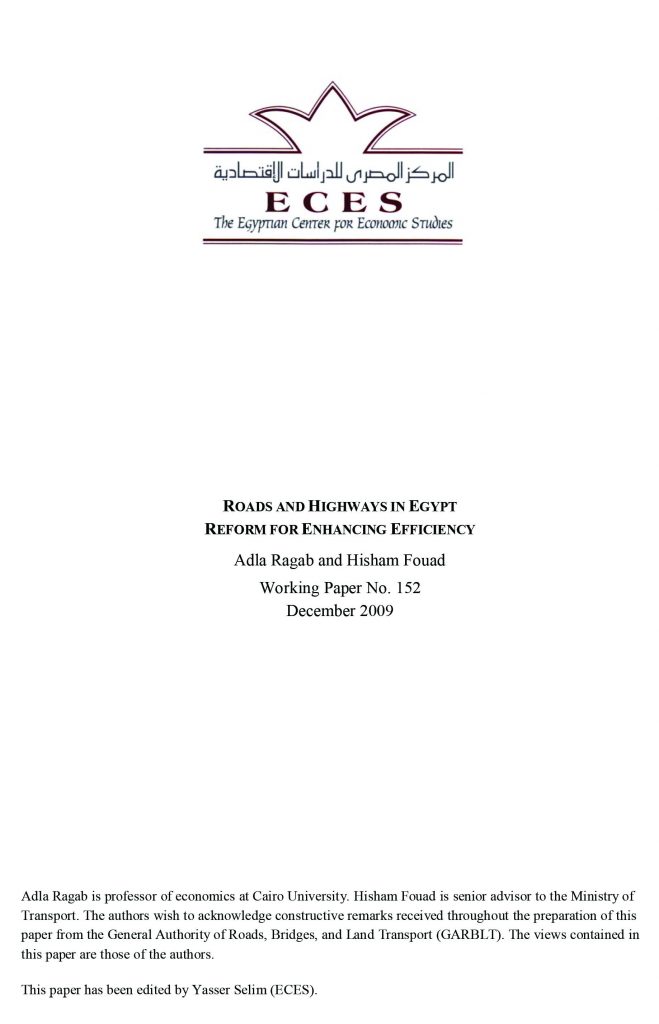Abstract:
The transport sector in Egypt is characterized by strong public intervention in the design, building and operation of networks and services. Additionally, being a strategic sector, it is marked by significant political interference, aiming to either absorb excess workers or to maintain a low pricing policy. Such policies led to a considerable deficit and shortage of resources in this sector. It is no surprise, therefore, that financing new projects and improving efficiency headed a list of problematic issues on the government agenda. In order to solve these problems many reforms need to be implemented. In this context, the study focuses on ways to develop performance and eliminate obstacles facing private sector participation in rehabilitation and maintenance of infrastructure in order to reduce the cost burden on the public sector. It illustrates the experience of a number of developing countries in reducing road transport costs and improving the service as well as the different possibilities to enhance the sector’s efficiency either by reforming public sector performance, strengthening private sector involvement or adopting public–private participation in road investment

